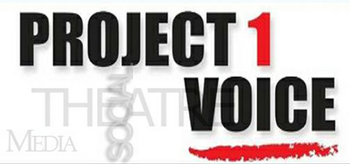project1voice aims to raise money for african american theatre programs in cleveland

During Langston Hughes' heyday, African American theatre was "booming, expressive, avante garde and politically punching," says Anthony Elfonzia Nickerson-El of Project1Voice, a national group that aims to spark renewed interest in black theatre. "Hughes and his contemporaries were the conscience of the community."
Fast forward 80 years. Historically African American theatres continue to play an important role in exposing young people in urban areas to the arts and nourishing the much-needed attributes of creativity, critical thinking and self-confidence. Yet they also face new economic challenges in the wake of the Great Recession.
"During this time of reduced funding for the arts, African American theatres have been hit hard financially," says Nickerson-El. "These theatres offer arts and music programs that may not be in the schools anymore. They play a significant role in the development of young people and introduce the community to the arts."
Cleveland is fortunate to be home to Karamu House, the oldest African American theatre in the U.S. Many of Langston Hughes' plays premiered at the theatre.
To help raise money for African American theatres, Project1Voice sponsors a fundraiser called "1 Voice, 1 Play, 1 Day." A stage reading of James Baldwin's "The Amen Corner" will take place on Monday, June 18th at 7 pm to benefit Rainey Institute Children's Theatre. Tickets are $25 and can be purchased online.
Source: Anthony Elfonzia Nickerson-El
Writer: Lee Chilcote

